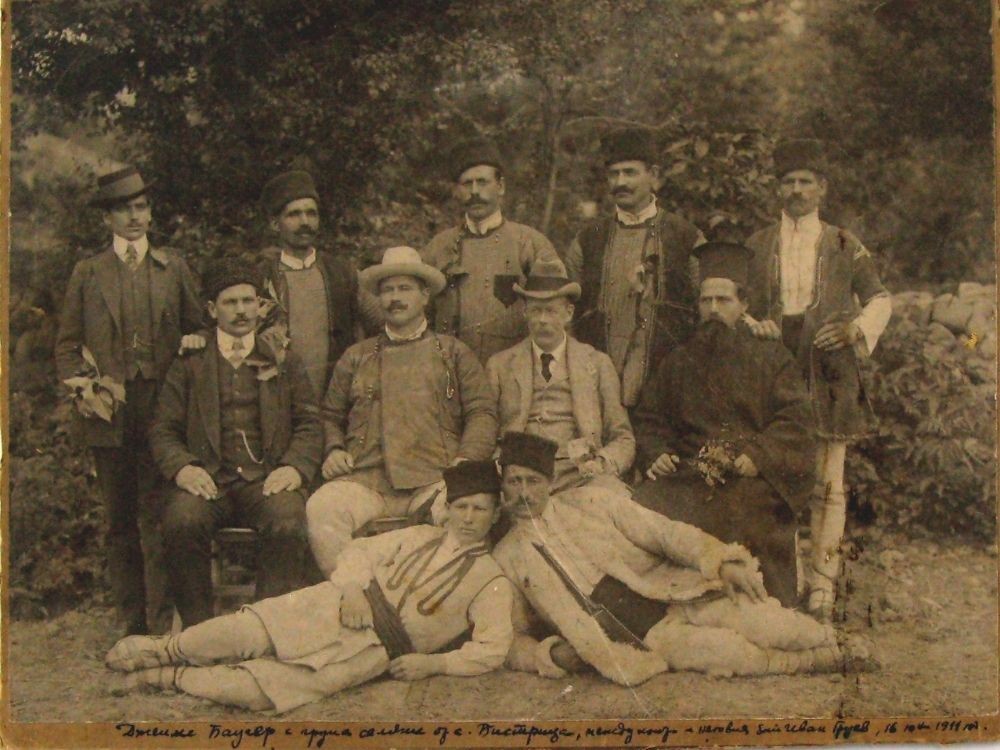He was probably the most faithful friend the Bulgarian people ever had, British newspaper The Times once described its longtime Balkan Peninsula correspondent, James Bourchier. He lived in Bulgaria for quarter of a century and became one of the most prominent champions of the Bulgarian cause and his love for this country is evident in his numerous reports.
He was born on December 18, 1850, in Limerick, Ireland. Later, thanks to his prestigious education he started teaching at Eton but at the same time his writings started capturing the attention of the most influential British newspaper The Times. In a short time he gained great popularity and won the trust of the paper, which gave him a difficult and serious task – to become a correspondent in Southeast Europe. While traveling across the peninsula he became an unsurpassed expert on Balkan politics.
James Bourchier chose to live and work in post-liberation Bulgaria and remained in Sofia during the period 1892 - 1915. Quickly, the Irishman became captivated by the Balkan country - he had many friends, loved Bulgarian folklore, wore national costumes, drank rakia, and even slept covered by a long traditional wool overcoat.

The journalist's articles are the strongest evidence of his attitude towards Bulgaria and his knowledge of the situation in the region. These articles gave British society the opportunity to get acquainted in detail with ongoing events.
There was constant strive for objectivity in his work. According to historians, this is well seen in some not so favorable articles about this country.
The Times correspondent left Bulgaria after it entered World War I in 1915, but later wrote several articles criticizing the terms of the Treaty of Neuilly, calling them "too harsh."
After his death in 1920, James Bourchier was buried in Bulgaria, near the Rila Monastery.

The Irish journalist loved Bulgaria and Bulgaria loves him. Nowadays, a memorial plaque in his honor stands on the building where James Bourchier lived, opposite the former royal palace in Sofia. In one of the capital's gardens a bust of him can be seen, and in Rila Mountain there is a peak named after him. In this way, Bulgaria expresses its gratitude to a foreigner who loved this country and dared to defend it during some of its most difficult times, BGNES recalls.

Editor: Elena Karkalanova
English: Alexander Markov
Photos: BGNES
Atanasovden, also known as Midwinter in our folk calendar, is a holiday on which the Orthodox Church and our folklore pay tribute to St. Athanasius the Great – Archbishop of Alexandria and a fighter against Arianism (church heresy which rejects the..
The only chapel in the country to bear the names of Saints Anthony and Atha nasius is in Sandanski, and its consecration will be performed by His Eminence Metropolitan Seraphim of Nevrokop, reports Andon Kotev - one of the initiators of the idea to..
On January 17, the Orthodox Church honors the memory of St. Anthony the Great – a zealous advocate of Christianity. At an advanced age, he took part in the Church's struggle against the Arian heresy. Anthony got into an open dispute with the..
Today is Cheesefare Sunday. According to Orthodox tradition, this day is observed on the eve of Great Lent, when Christians seek and give forgiveness to..

+359 2 9336 661
